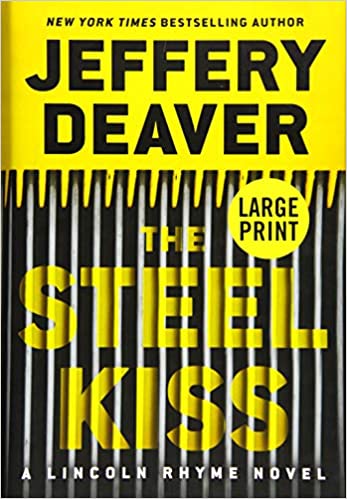This May 2021, the French TV network TF1 has broadcasted the show Lincoln Rhyme: Hunt for the Bone Collector. It is the adaptation of crime novels written by Jeffery Deaver, dedicated to the investigations of Lincoln Rhyme, a former policeman turned quadriplegic, genius of crime scene analysis. (Some of these thrillers are excellent. The author of these lines recommends reading The Stone Monkey, which takes place in the milieu of illegal Asian migrants in New York, and The Kill Room, which succeeds in not being Manichean even though it is devoted to a higly controversial topic: targeted assassinations ordered by the American government).
This show gives us the opportunity to reflect on the legal aspects of the original stories, and in particular of one of them, The Steel Kiss.
This opus begins with an issue that is merely a question of torts and liability. In a shopping mall, the top panel of an escalator gives way under the feet of a customer. The customer falls, is caught by the motor, and dies in terrible conditions.
The widow's lawyer then asks the main character for help (chapter 6). He explains that the uncertainties about the causes of the escalator malfunction prevent him from identifying the responsible third party and complicate, or at least delay, the compensation process.
What would happen under French law? Can the victim of an escalator accident easily identify a responsible party?
The Cour de cassation (i.e. the French highest civil Court) has periodically had occasion to consider such questions. Its latest case law on escalator accidents dates back to 2003. In that case, a traveler was hit and knocked down by a suitcase dropped by an unidentified person while on an escalator in the Montparnasse train station. The Paris Court of Appeal had exonerated the SNCF (the company managing the French railways, trains and train stations) of any liability, arguing that the escalator was operating normally and that the accident was caused by a third party.
The Cour de cassation, basing itself on the liability for things (then governed by article 1384 of the Civil Code, now article 1242), overturned the decision of the Paris Court of Appeal, considering that, since the moving escalator was at least partly the instrument of the damage the act of a third party can exonerate the guardian of the escalator only if it was unforeseeable and irresistible (Cass 2eme civ, March 13, 2003, n°01-12. 356, https://www.legifrance.gouv.fr/juri/id/JURITEXT000007047538)
To put it very simply, the SNCF (or a shopping center) is indeed the guardian of the escalator operating in its premises and, in principle, responsible for an accident suffered on this moving equipment.
The liability of a shopping center for an accident caused by an inert object is more difficult to enforce.
The Cour de cassation considers that "the liability of the operator of a store with a free entrance cannot be engaged, with regard to the victim of a fall which occurred in this store and of which an inert object would be the cause, only on the basis of article 1384, paragraph 1, now 1242, paragraph 1, of the Civil Code, it being up to the victim to show that this thing, placed in an abnormal position or in bad condition, was the instrument of the damage" (Cass 1ere civ, 9 Sept 2020, n°19-11. 882, Responsabilité civile et assurance 2020, comment 201, note Anaïs HACENE, https://www.legifrance.gouv.fr/juri/id/JURITEXT000042348731).
To summarize:
- If the customer of a shopping center is the victim of an accident caused by an inert thing, it is up to him to demonstrate an anomaly of the said thing (abnormal position, bad condition) to engage the responsibility of the store,
- If the customer of a shopping center is the victim of an accident caused by a moving thing (in particular, an escalator), the store is in principle liable, unless it can be shown that the accident was caused by the act of a third party, unforeseeable and irresistible.
French law appears to be more protective than American law, in the fictional version presented by Jeffery Deaver - which is potentially relevant: the author is a former lawyer - for the compensation of an escalator accident victim. At least as far as the principle of compensation is concerned, the amounts awarded on the other side of the Atlantic being classically more generous.
There remains a problem, posed in The Steel Kiss, which is universal: that of judicial time, even though emergency procedures allow victims to obtain provisions on compensation within a reasonable time.
Attorney at Law
This paper was originally published in french by Le Village de la Justice



Pas de contribution, soyez le premier